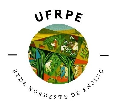Banca de DEFESA: MILCA MARIA CAVALCANTI DE PAULA
Uma banca de DEFESA de DOUTORADO foi cadastrada pelo programa.STUDENT : MILCA MARIA CAVALCANTI DE PAULA
DATE: 25/07/2025
TIME: 09:00
LOCAL: UNIVERSIDADE FEDERAL RURAL DE PERNAMBUCO
TITLE:
MUSIC EDUCATOR IN THEIR ART OF TEACHING IN THE ORFF-SCHULWERK APPROACH: CHOIR OF NARRATIVE (AUTO)BIOGRAPHICAL VOICES.
KEY WORDS:
Teacher training, Carl Orff, narratives, phenomenology.
PAGES: 202
BIG AREA: Ciências Humanas
AREA: Educação
SUBÁREA: Ensino-Aprendizagem
SPECIALTY: Métodos e Técnicas de Ensino
SUMMARY:
When reflecting on how a music educator is trained, it is important to understand that they must be motivators of musical thinking and doing. They must be able to rethink the use of music, focusing on situations experienced and internalized in their daily work. Music education stands out in debates that differentiate the profession of music, primarily due to its humanized teaching approach (Queiroz, 2003). In this process, training is seen as fundamental to professional performance. However, this training has been questioned due to its status in the various courses that provide initial training in the field. To understand the training of music teachers or music educators, it is important to remember that this topic has been the subject of numerous debates, and that these debates intensified after the passage of Law 11.769/2008, which proposed mandatory music education in elementary and middle schools. Reflecting on and understanding the training of these teachers within undergraduate music programs implies understanding the concepts, beliefs, and values that guide all educational actions (Pires, 2003) in this information and technology-driven society. This dissertation poses a guiding question that investigates a teaching style: What do music educators say about their formative experiences and lived practices within the Orff approach? The overall objective is to understand the process of becoming a music educator through a perspective on lived practices and their narrated experiences. The specific objectives are: I. To present Orff-Schulwerk music pedagogy—its foundations and philosophical principles; II. To analyze the lifelong educational trajectories of teachers who use Orff pedagogy; III. To identify the contributions of Orff pedagogy in the practice of music teachers. The methodological design consists of the analysis of the (auto)biographical narratives of the collaborators involved, following semi-structured interviews called Musicobiographization (Abreu, 2017). The research is also phenomenological in nature. The theoretical framework of the thesis articulates studies of the Orff-Schulwerk approach of the German music pedagogue Carl Orff (1963); Barrett, (2005; 2009); Passeggi (2011; 2015); Machado (2005); Momberger (2012; 2014); Morim (2003), Larrosa, (1994); Nóvoa (1991), Cunha, (2013), Minayo (1994), among others. The thesis was subdivided into five parts with the final considerations, which become the reflective result of attentive listening of the research collaborators. The first part addresses the introduction in detail, recording the guiding question and objectives of the work. The first chapter explores the musical and intellectual work of music educator Carl Orff, analyzing his life story and pedagogical approach, the Orff-Schulwerk. The second chapter explores the narratives of the collaborating teachers to understand their reasons for choosing to use the Orff approach, analyzing what constitutes an Orff music educator today. The third chapter explores and identifies the methodology chosen for the dissertation. The fourth chapter presents the interpretative analyses of the narratives, seeking to answer the guiding question of this work: understanding how one learns and how to teach Orff pedagogy. The dissertation concludes with considerations that are not intended to be "final," but rather to confront certainties (Barrett, 2009) and reflect on the topic of training music educators who adopt the Orff-Schulwerk approach in the 21st century.
COMMITTEE MEMBERS:
Presidente - GILVANEIDE FERREIRA DE OLIVEIRA
Interno - FRANCISCO NAIRON MONTEIRO JUNIOR
Interna - VERONICA TAVARES SANTOS BATINGA
Externo à Instituição - ALEXSANDRO DOS SANTOS MACHADO - UFRGS
Externa à Instituição - MARIA JOSÉ COSTA DOS SANTOS - UFC




